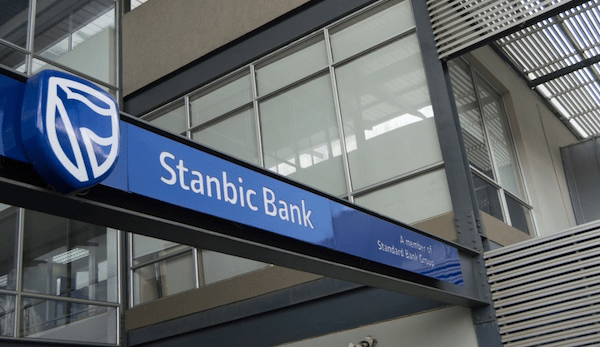Stanbic IBTC Holdings PLC, a member of Standard Bank Group, recently hosted a webinar titled “2022 ‘Virtual Economic Outlook- Investing and planning in an election cycle”. The event which aimed at reflecting on economic trends that shaped 2021 and projecting into 2022, held on Monday, 14 February 2022.
According to the financial services provider, the webinar affords participants the opportunity to learn directly from economic experts on the importance of planning and investment.
Bismarck Rewane, Managing Director and Chief Executive Officer, Financial Derivatives Company Limited, and Muyiwa Oni, Head, Equity Research, Stanbic IBTC Holdings PLC, led deliberations at the virtual event.
Other speakers at the webinar were Eric Fajemisin, Executive Director, Corporate and Investment Banking; Remy Osuagwu, Executive Director, Business and Commercial Clients; Executive Director Client Solutions – Bunmi Dayo-Olagunju and Olumide Oyetan, Chief Executive, Stanbic IBTC Pension Managers.
Dr. Demola Sogunle, Chief Executive, Stanbic IBTC Holdings, set the tone for the event by appreciating the customers for the confidence and trust reposed in the organisation through their patronage. He assured Nigerians of valuable and exciting opportunities despite the likely headwinds as the nation prepares for its general elections.
Bismarck, who enumerated the current state of the Nigerian economy, noted that Nigeria’s expenditure currently stands at N19.63 trillion while its revenue stands at N10.71 trillion. This, he said, represented a fiscal deficit of N8.92 trillion, which translates to an increasing level of poverty, inflation, unemployment and the number of out-of-school children. He noted that the number of fully employed Nigerians had dipped by 54.41 per cent in the last five years and the working population grew by 18.45 per cent, while 50 per cent of Nigerians remain idle.
Highlighting Nigeria’s fiscal position in five years, he noted that while oil prices increased by 62.36 per cent; currency and balance of trade weakened by 239.76 per cent and 35.95 per cent respectively, with gross external reserves gaining 39.29 per cent.
According to him, sustained supply concerns have helped to shore up global oil prices above $80 per barrel while the Central Bank of Nigeria has continued to step up its intervention programme in the forex market as the nation’s gross external reserves continue to dwindle. Also, he said, the naira has continued to witness increased pressure due to excess liquidity.
“The nation’s economy is expected to continue its rebound as witnessed in the last quarter of 2021 while oil prices are likely to remain high as major economies re-open fully and oil demand picks up. Furthermore, the advent of COVID-19 vaccines has continued to discount the impact of Omicron on oil demand while the effect of the Iran nuclear deal is expected to push up the nation’s oil supply to the global market. This is expected to provide more support to Nigeria’s earnings,” said Bismarck.
“To boost the manufacturing sector, the Central Bank of Nigeria (CBN) is likely to intensify its forex intervention as it seeks to increase supply to manufacturers, Also, the CBN is expected to step up efforts towards exchange rate convergence, increase its intervention in the forex market while the postponement of the fuel subsidy removal will dampen the anticipated spike in inflation for the year as trade policies are expected to become less protectionist.”
Eric Fajemisin, Executive Director, Corporate and Investment Banking, Stanbic IBTC Bank noted that Stanbic IBTC, through its business advisory services, has continued to help its customers make good investment decisions and provide them with business financing. Remy Osuagwu, Executive Director, Business and Commercial Clients also of Stanbic IBTC Bank said the organisation has continued to partner with the CBN in its various intervention programmes such as the Real Sector Fund, Anchor Borrowers Fund, and the Nigeria Incentive-Based Risk Sharing System for Agricultural Lending (NIRSAL), amongst others.
Olumide Oyetan, Chief Executive, Stanbic IBTC Pension Managers said that Stanbic IBTC, through its investment management vehicle, has continued to provide avenues for investors to profitably invest their funds short and long term while ensuring the safety of invested funds.
Bunmi Dayo Olagunju, Executive Director of Client Solutions, Stanbic IBTC in her concluding remarks, stated that the economic ecosystem can improve during the election cycle if digital technologies can be leveraged effectively.


 Naira3 weeks ago
Naira3 weeks ago
 News4 weeks ago
News4 weeks ago
 Naira4 weeks ago
Naira4 weeks ago
 Naira3 weeks ago
Naira3 weeks ago
 Jobs3 weeks ago
Jobs3 weeks ago
 Travel3 weeks ago
Travel3 weeks ago
 Naira3 weeks ago
Naira3 weeks ago
 Investment4 weeks ago
Investment4 weeks ago





















